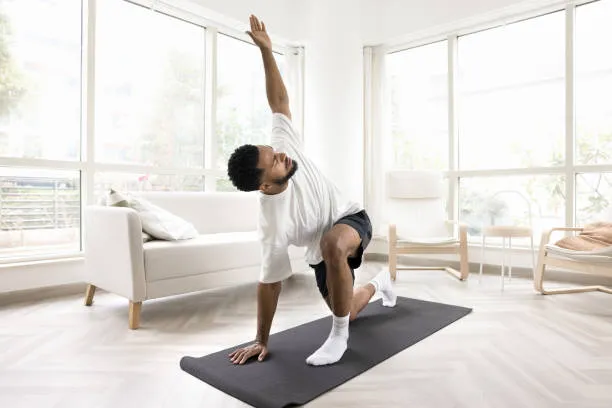Read time : 3 minutes

Prostate cancer is one of the most common cancers affecting men worldwide. While medical treatment and regular screenings are essential, lifestyle choices also play a major role in both lowering the risk of prostate cancer and supporting recovery during treatment. Among these, exercise stands out as a safe, accessible, and highly effective tool.
Research published in the Journal of Clinical Oncology has shown that men who engage in regular physical activity have a lower risk of developing prostate cancer and also experience better treatment outcomes if diagnosed. Exercise works by reducing inflammation, balancing hormones, managing weight, and improving circulation, all of which influence prostate health. Lets discuss how exercise helps with prostate cancer treatment and prevention.
Exercise in Prostate Cancer Prevention
One of the biggest risk factors for prostate cancer is obesity, as excess body fat can lead to higher levels of hormones such as insulin and estrogen that may fuel cancer growth. Regular exercise helps control weight by burning calories and boosting metabolism. Aerobic activities like brisk walking, jogging, cycling, or swimming improve heart health, reduce fat levels, and lower the risk of aggressive prostate cancer.
Exercise also helps regulate testosterone and other hormone levels. While testosterone itself doesn’t cause prostate cancer, imbalances in hormones and inflammation can contribute to cancer progression. Moderate to vigorous activity helps maintain hormonal balance, protecting the prostate against harmful changes.
A long-term study from Harvard’s School of Public Health found that men who exercised vigorously for at least three hours a week had a significantly reduced risk of advanced prostate cancer compared to those who were sedentary. This makes consistent movement a protective shield for long-term prostate health.
Exercise During Prostate Cancer Treatment
For men undergoing treatment, exercise can make the journey smoother and recovery stronger. Treatments such as surgery, radiation, or hormone therapy often bring side effects like fatigue, weight gain, muscle loss, or reduced bone density. Exercise directly counters many of these challenges.
Fighting Fatigue: Light to moderate aerobic exercise, such as walking or cycling, has been shown to reduce cancer-related fatigue and improve energy levels.
Maintaining Muscle and Bone Strength: Resistance training helps prevent muscle wasting and bone thinning caused by hormone therapy. Simple exercises like squats, push-ups, or resistance band workouts are effective.
Improving Mood and Mental Health: Exercise stimulates the release of endorphins, reducing anxiety and depression, which are common during cancer treatment.
*Enhancing Treatment Outcomes: *Some studies suggest that men who stay physically active respond better to treatments and have improved survival rates.
Take-Home Message
Exercise is not a cure for prostate cancer, but it is one of the most powerful allies men can have in both prevention and treatment. By helping maintain a healthy weight, balancing hormones, boosting circulation, and improving mental wellbeing, regular physical activity creates an environment that is less favorable for cancer to grow and more supportive of treatment success.
Whether it’s brisk walking, swimming, resistance training, or even yoga, the key is consistency. By making exercise part of your weekly routine, you’re not only protecting your prostate but also strengthening your whole body to face life with more resilience.
Your journey to better prostate health doesn’t have to be complicated, it just has to be active.
Meet Your Ai Personal Trainer
Download the App to Take your free Ai health assessment Today [Take Assessment]
Baah Sekyere Agyekum
Myhealthcop physical activity expert